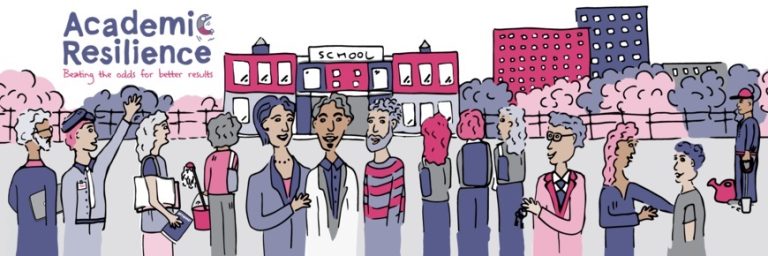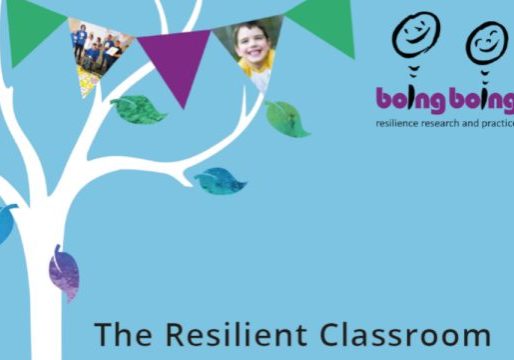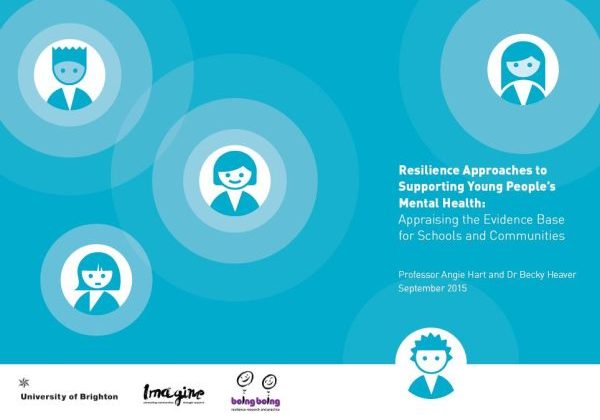A resilience zap is an idea to try if you want to get the following going across the school community:
• A basic level of understanding about building resilience and what it involves
• Some shared language around disadvantaged pupils and support for them
• Building of commitment to really go the extra mile with pupils who need it
• Inspiring ideas based on evidence of what works
You will need:
• A big room
• Screen & projector, speakers & access to Power Point
• Refreshments to bribe people in
• A decent amount of time (half a day if possible, but doing a couple of hours is better than nothing)
We suggest you aim for an InSET session with as many of the adult school community there as possible (cooks, cleaners, support staff, teachers, technicians, etc).Of course we know that this is a challenge and InSET agendas are pretty full. But from all the work we have done in schools we know the results are great and schools are really glad they have done it.
Can’t face doing this yourself?
If you get someone in to help, make sure they really understand resilience. They need to know how to get a resilience culture going across the whole school system.
When we have tried this with schools, there has been some resistance to the ‘all in a room and a decent amount of time please’ refrain, but it has definitely been worth persisting with. As one librarian said after a workshop
“We do a lot of things that we don’t realise are probably helping a child cope with life – it was good to have some time to really think about that more; and be acknowledged for our broader role.”
Suggested programme for the session
Details of timings will be up to you, and you might want to change the order, but basically you are looking for a process which goes along the lines of:
1. Introduce Academic Resilience and the context for promoting it within the school
• Why is this important to the school? (reminder of progress for disadvantaged pupils, Closing the Gap concerns, and recognition that some children face greater barriers to learning which the school can help with)
• Why bother with this? (it would be a good idea to prepare for this by reading What is Academic Resilience and familiarising yourself with the concept of resilience and the evidence based approaches which work in promoting it)
• If this is backed by the senior leaders in the school then tell people why
2. Presentation on resilience
Difficult to do if it’s not your area, so here’s one we prepared earlier. If you want to add to it or change it, feel free!
• Give people the opportunity to discuss and think about what this means for them in their role.
3. Show a film
There’s nothing like hearing it from the horses’ mouths so to speak. There are some short films on this website which promote resilience approaches in schools. These include a special school, a primary and secondaries.
Take a look at the film about young people who have been affected by mental health issues talking about how school was for them and what might have helped them more. It’s inspiration fodder to get people thinking about what you could do in your school for disadvantaged pupils.
4. Self assess strengths and areas for improvement across the whole school
• Use the opportunity to pool information on what the school does (or self assess) in relation to the evidence base for what builds resilience – and generate ideas.
• Use our audit tool for whole staff groups. This is designed to ask about some of the key ways in which resilience is promoted. Do this in mixed groups and get facilitators on each table to ensure everyone has a say. What are you already doing well, what could be improved and what needs improving?
• Would you like to take the audit further and gather much more insight about how well you are doing as a school?
• Then look at our suggestions for a whole load of ways to do this including focus groups and surveys. Again, you may want to get us in to help you with this if you need some support to do it.
5. Using the Resilience Framework; Trying the approach in relation to individuals?
• If you have time ask the staff to think about a disadvantaged or vulnerable child they know who they have spent time working with but with whom they feel a bit stuck. It might be a child they find particularly challenging.
• In pairs, use the Resilience Framework and discuss what they have tried with that child and see if the framework sparks any new ideas for what they might try.
• The Resilience Framework is a table which draws together all the interventions and strategies which have been shown to have some evidence behind them in terms of building elements of resilience in children. It provides a handy tool for thinking about individuals and can be used as an assessment tool as well as a planning tool. We’d recommend you read more about it and encourage staff to do the same!
To recap
Here’s a draft 2-4 hour programme for the session which you can shape to make your own:



